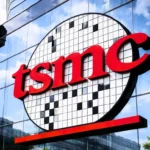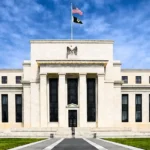Key Points
- Trump’s supporters hoped for relief from high costs but proposed 20–60% tariffs on goods from China that could increase consumer prices.
- Mass deportations of undocumented workers could lead to wage increases, particularly in construction and agriculture.
- Inflationary policies may force the Fed to hike interest rates, raising borrowing costs.
- Experts warn that Trump’s broader policies could have a much larger inflationary impact than his first term.
A major driver behind President-elect Donald Trump’s support in the 2024 election was inflation, with many of his 73.5 million voters casting ballots hoping for relief from rising costs in essentials like food, gas, and housing. States, where real wages had stagnated, saw significant shifts toward Trump, as voters hoped his policies would bring price stability. However, if Trump follows through with key campaign promises, economists believe these actions could spur inflation.
The potential inflationary impact lies in Trump’s proposals: broad tariffs on imports, mass deportation of immigrant workers, and tax cuts. Trump’s proposed tariffs, including a universal rate of 20%–60% on goods from China, would likely increase prices on everyday items. According to a Tax Policy Center analysis, these tariffs could reduce the average post-tax income by $1,800 in 2025.
Importing companies are expected to pass these costs to consumers, raising prices on goods like cars, pharmaceuticals, and appliances. Some corporate leaders, like AutoZone’s CEO Philip Daniele and Columbia Sportswear’s CEO Timothy Boyle, have warned of anticipated price hikes if tariffs are enacted.
The immigration policy poses another inflation risk. Trump’s plan to deport millions of undocumented workers is projected to lead to a labor shortage in key sectors such as construction and agriculture, which rely heavily on immigrant labor. Economists predict that a reduced workforce would force businesses to raise wages to attract new workers, ultimately pushing prices higher. The National Association of Homebuilders has stated that mass deportations could slow housing production and lead to increased home prices.
If Trump’s economic plan leads to an inflation spike, the Federal Reserve would likely raise interest rates to curb it. This would increase consumer and business borrowing costs, further straining household budgets. Signs of market concern are already evident, as bond yields have surged and inflation expectations have risen since Trump’s election win.
Trump’s first-term tariffs didn’t significantly raise inflation, but economists believe the scale of his new policies could lead to a different outcome. This time, the inflationary risk comes from broader, more intensive policies targeting China and other nations.




